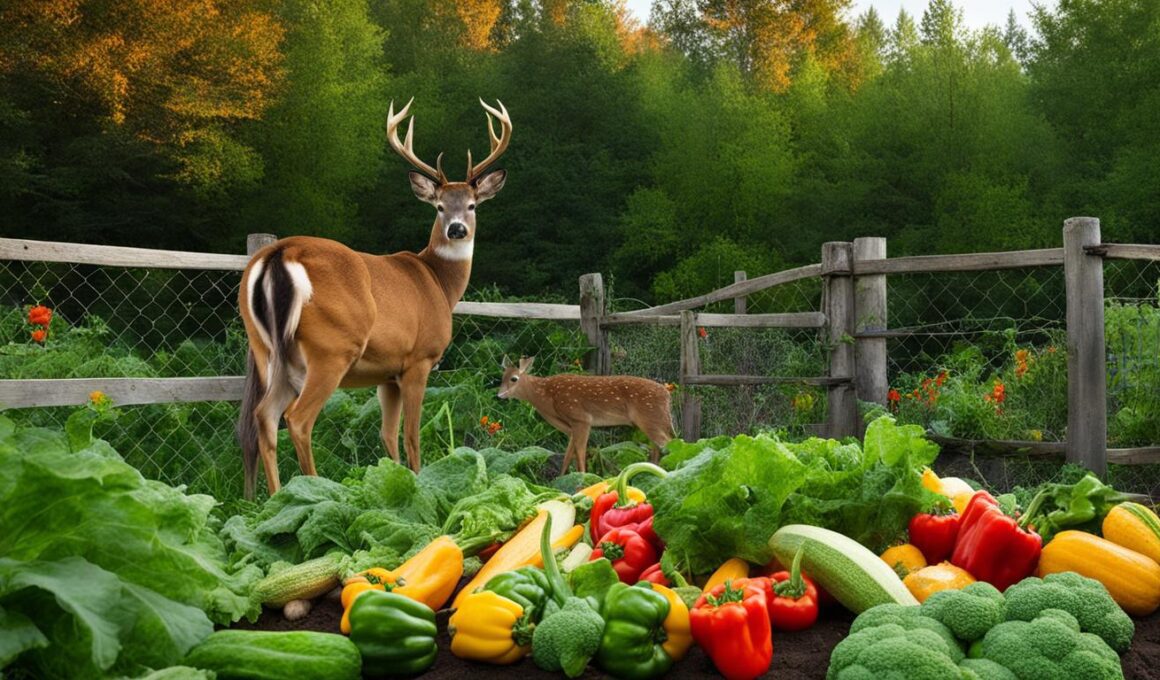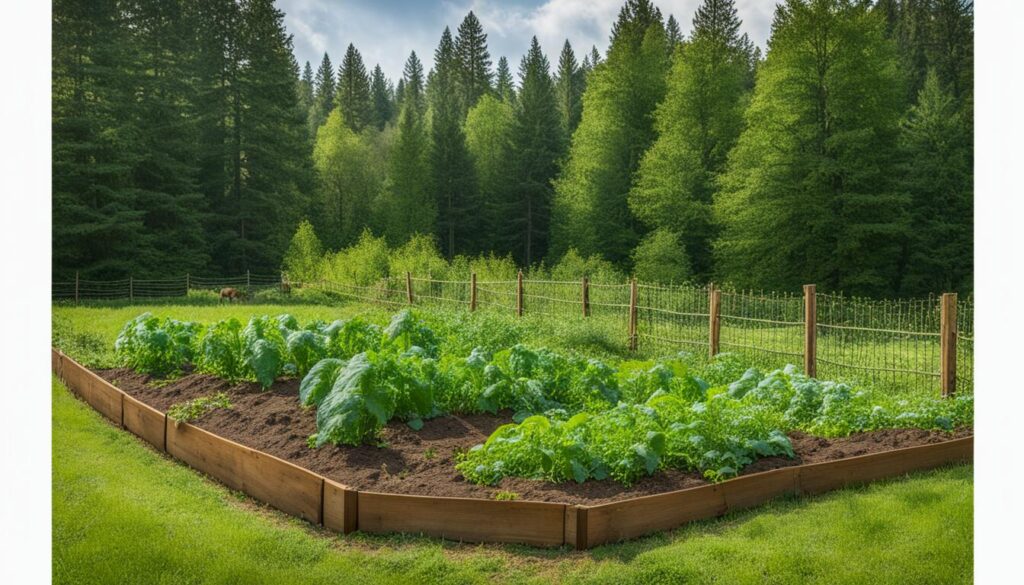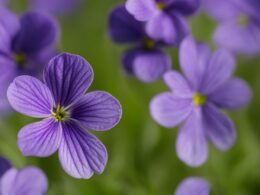Deer have a notorious reputation for devouring plants and vegetables, causing frustration for many gardeners. But what about cucumbers? Are they on the menu for these hungry animals? In this article, we will explore whether deer eat cucumbers and provide tips on how to protect your plants from these voracious grazers.
When it comes to deer-resistant vegetables, cucumbers are considered to be one of the safer options. Alongside onions, garlic, leeks, chives, dill, and mint, cucumbers fall into the category of plants that deer tend to find less palatable. These vegetables possess strong scents or flavors that deer generally dislike. Additionally, the prickly leaves of cucumbers may deter these animals from indulging in your crop. However, it’s important to remember that deer have adaptable tastes, and if they are extremely hungry, they may still nibble on cucumbers and other seemingly resistant vegetables.
Deer are not known for being picky eaters and will consume a wide range of plants, including cucumbers. While the prickly texture of cucumber fruits might suggest that deer would avoid them, this is not the case. These animals can munch on prickly and thorny plants without hesitation. Furthermore, cucumbers are not toxic to deer and offer them hydration and essential nutrients. The mild taste and smell of cucumbers can make them an appealing snack for deer, even if they are not their first choice.
So, how can you protect your cucumbers from deer? There are several strategies you can employ. One effective method is the use of physical barriers, such as deer fences or netting, to keep these animals out of your garden. Another approach is the utilization of deer repellents, which can help deter deer from approaching your precious plants. These repellents can be sprayed on the foliage or strategically placed around the garden to create an unpleasant scent or taste for the deer.
Additionally, scare tactics can be effective in warding off deer. Consider using noise-making devices or motion-activated sprinklers to startle the deer and discourage them from entering your garden. By implementing these protective measures, you can increase the chances of your cucumbers thriving and avoid them becoming a deer’s delectable treat.
Deer Resistant Vegetables: Cucumbers and Other Options
When it comes to planting a garden, deer can pose a significant challenge. These hungry animals have a tendency to munch on plants, causing frustration for many gardeners. However, there are certain vegetables that deer tend to avoid or find less appealing. Cucumbers, for instance, fall into the category of deer-resistant vegetables. Alongside cucumbers, you can also consider planting onions, garlic, leeks, chives, dill, and mint in your garden. These plants have strong odors and tastes that deer typically dislike.
One of the reasons why cucumbers are considered deer resistant is their prickly leaves. These leaves can make the plants less appealing to deer, deterring them from munching on your cucumber vine. While deer tastes can adapt, and hungry deer may still consume supposedly resistant vegetables in desperate situations, planting deer-resistant vegetables like cucumbers can help minimize the damage to your garden.
While planting deer-resistant vegetables like cucumbers is a proactive step in protecting your garden, it’s important to keep in mind that no plant is completely deer-proof. If deer populations are high or they are particularly hungry, they may still venture into your garden and sample these apparently less appealing plants. To increase the chances of safeguarding your cucumbers from deer, it is important to consider additional deterrents and protective measures for your garden.
- Install a physical barrier such as a deer fence or netting around your garden to prevent deer from entering and accessing your cucumber plants.
- Consider using deer repellents that create unpleasant smells or tastes to deter deer from approaching your plants. These repellents can be sprayed on the foliage or placed around the garden.
- You may also try scare tactics, such as noise-making devices or motion-activated sprinklers, to startle and discourage deer from entering your garden.
By combining multiple strategies, you can increase the chances of successfully protecting your cucumbers and other garden plants from deer. Remember, each deer encounters differently, and what may work for one may not work for another. It’s important to be vigilant and adaptable in your approach to deer damage control in your garden.
Deer Behavior and Cucumber Consumption
Deer are known for their varied eating habits and can consume a wide range of plants. When it comes to cucumbers, although deer may have their preferences, they will eat them if they come across them in their search for food. It is a common misconception that the prickly texture of cucumber fruits deters deer from consuming them. In reality, deer can easily eat prickly and thorny plants without any issues.
Additionally, cucumbers are not toxic to deer and can actually provide them with hydration and essential nutrients. Despite not being their top choice, the mild taste and pleasant smell of cucumbers make them appealing to deer. It is important to note that deer have adapted tastes and can develop a liking for different plants based on their natural environment and available food sources.
In order to better understand deer’s eating habits, it is important to consider their overall behavior and preferences. While some plants may be more attractive to deer than others, cucumbers remain a viable option for these curious creatures.
To illustrate just how much deer enjoy cucumbers, take a look at the image below:
Protecting Your Cucumbers from Deer
If you want to protect your cucumbers from deer, there are several strategies you can employ. One option is to use a physical barrier, such as a deer fence or netting, to keep the deer out of your garden. By installing a sturdy fence or netting around your cucumber plants, you create a barrier that prevents deer from accessing and damaging the plants.
Another effective approach is to use deer repellents. These repellents come in various forms such as sprays, granules, or concentrated liquids. They are formulated with ingredients that create an unpleasant scent or taste to deer, deterring them from approaching your plants. You can apply these repellents directly on the foliage of your cucumber plants or place them strategically around your garden to create a perimeter of protection.
In addition to physical barriers and deer repellents, you can also employ scare tactics to discourage deer from entering your garden. Consider using noise-making devices, such as wind chimes or aluminum foil strips, to startle the deer and make them uneasy. Motion-activated sprinklers can also be effective in deterring deer by spraying them with water whenever they approach your cucumber plants. These scare tactics can disrupt the deer’s feeding patterns and make your garden less attractive to these hungry animals.
Can Yellow Spots on Cucumber Leaves Affect Deer’s Appetite for Cucumbers?
Yes, yellow spots on cucumber leaves can affect deer’s appetite for cucumbers. Deer typically avoid consuming plants with yellow spots as it can be a sign of disease or spoilage. It is best to address the issue promptly to prevent any negative impact on the deer’s feeding habits.










